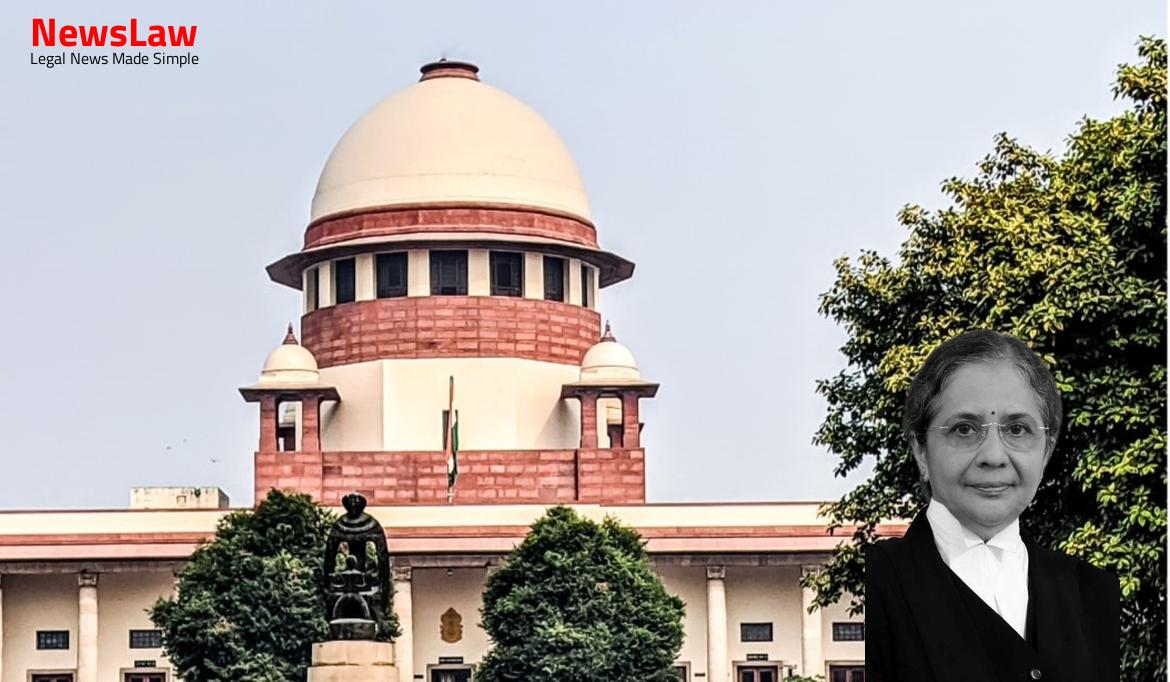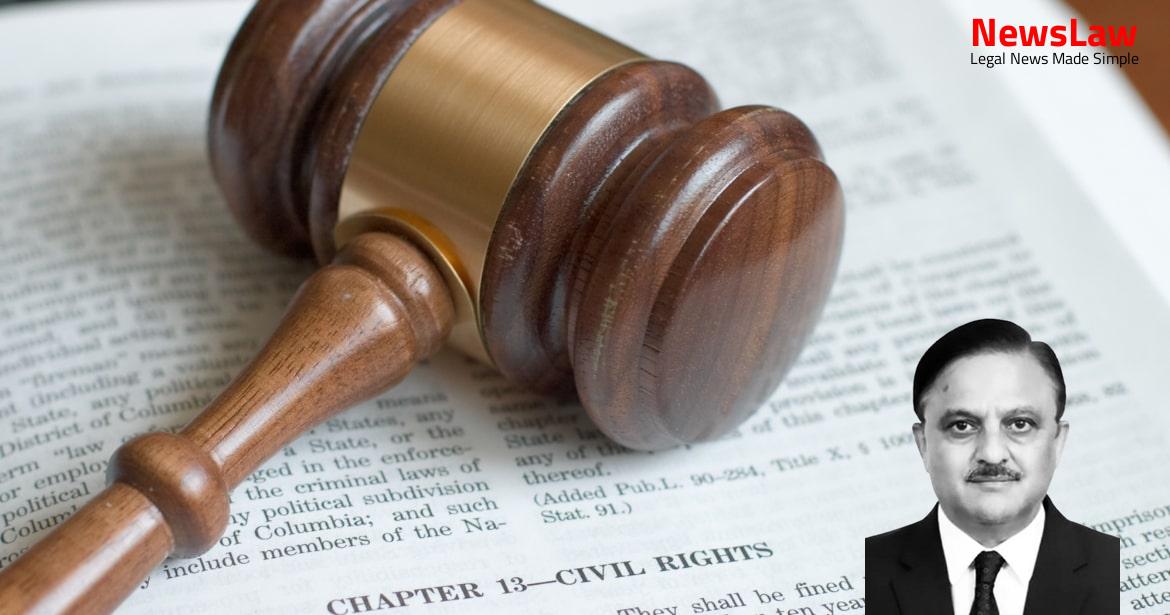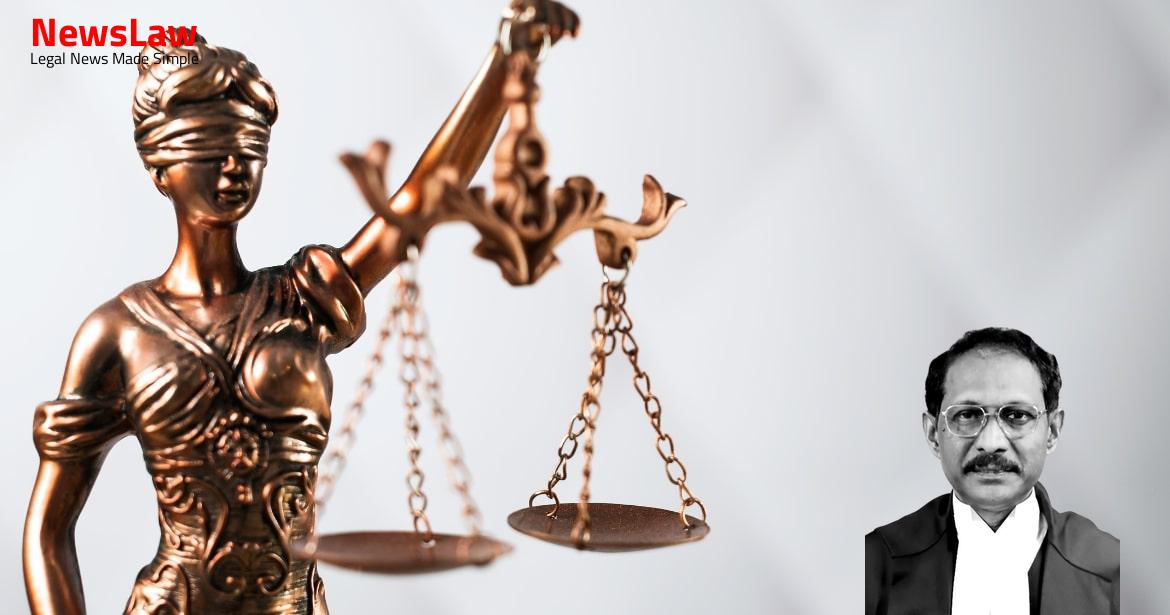In a recent legal case, the court undertook a detailed analysis of the enforcement of arbitration agreements, focusing on the intricate legal principles at play. The decision emphasized the importance of contextual interpretation over rigid legalistic approaches, particularly regarding the existence and enforceability of arbitration agreements. This blog post will delve into the court’s insightful legal analysis and its implications on arbitration proceedings.
Facts
- The petitioner issued three notices on December 18, 2020 invoking the arbitration clause in the agreements against the respondent.
- Respondent raised contentions regarding non-payment of stamp duty on agreements as per the Maharashtra Stamp Act, 1958.
- Respondent proposed mediation for resolving disputes.
- Petitioner agreed to mediate but mediation failed.
- Petitioner suggested a single arbitration for the three agreements and proposed two arbitrator names.
- Respondent did not agree to consolidation or proposed arbitrators.
- Respondent terminated the agreements on April 9, 2020.
- Petitioner suggested Mumbai Centre of International Arbitration appoint a sole arbitrator in the Consolidated Arbitration.
- Respondent did not agree to petitioner’s proposals and reserved the right to propose arbitrator names.
- Petitioner informed respondent of obligation to pay residual value of call out orders.
- The key fact is that the petitioner is a company from the British Virgin Islands.
Also Read: Balancing Power and Transparency: Electoral Bonds Struck Down, Disclosure Mandated
Arguments
- The Learned Senior Advocate, Mr. Amit Sibal, representing the petitioner, relies on the decision of the Court in the case of Inter-continental Hotels Group (India) Private Limited and Another versus Waterline Hotels Private Limited.
- The petitioner argues that in the mentioned case, the three-judge Bench had entertained an Arbitration Petition under Sections 11(6) read with Section 11(12) of the Arbitration Act.
- It was held that due to the time sensitivity in arbitration matters, the Court cannot delay proceedings until the larger bench settles the issue.
- This implies that the Arbitration Petition seeking appointment of a sole arbitrator should be entertained at this stage.
- Insufficient payment or non-payment of stamp duty is a curable defect
- There is no legal impediment to the enforceability of the arbitration agreement, pending payment of stamp duty on the substantive contract
- The court’s role is to examine the existence of the arbitration agreement, not the validity of the agreements
Also Read: Recall of Resolution Plan Approval: Legal Analysis
Analysis
- The arbitration agreement is separate from the underlying commercial contract.
- Non-payment of stamp duty on the work order does not invalidate the arbitration clause.
- The doctrine of separability allows the arbitration agreement to survive independently.
- Unstamped instruments are not admissible in evidence as per Section 34.
- Judicial review of tribunal jurisdiction timing varies across jurisdictions.
- Maharashtra Stamp Act does not require stamp duty on arbitration agreements.
- Efforts for mediation failed, leading to arbitration consolidation by the petitioner.
- Petitioner’s proposed arbitrator names were not accepted by the respondent.
- Arbitration agreement specifies dispute resolution mode.
- A void understanding is not a valid agreement.
- Respondent’s acceptance of consolidation prevents challenging arbitration agreements.
- Arbitral tribunal has the authority to rule on its own jurisdiction and determine the existence or validity of the arbitration agreement.
- An arbitration clause within a contract is considered a standalone agreement independent of other contract terms.
- A decision by the arbitral tribunal declaring the contract null and void does not automatically invalidate the arbitration clause.
- Sub-section 6A of Section 11 of the Arbitration Act, 1996, inserted in 2016, emphasizes the importance of focusing on the existence of an arbitration agreement during court proceedings.
- The court discussed the interpretation of ‘existence’ in the context of an arbitration agreement and its enforceability.
- The judgement in Hyundai Engg. case was cited, emphasizing that an arbitration clause only gets activated if the insurer admits liability.
- There was a debate on differentiating between the ‘existence’ and ‘validity’ of an arbitration agreement.
- The court observed that an arbitration agreement must be valid and legal to be considered as existing.
- The doctrines of separability and kompetenz-kompetenz were explained in the context of arbitration agreements.
- The court referred to a case where an arbitration agreement in an unstamped contract was deemed enforceable.
- It was noted that an arbitration agreement is distinct from the main commercial contract, and its validity is crucial for enforceability.
- The court overturned a previous judgement stating that an arbitration agreement in an unstamped contract is unenforceable.
- The court highlighted the importance of fulfilling stamp duty requirements for legal enforceability.
- Overall, the court emphasized the importance of contextual interpretation over a strict legalistic approach.
- There is no legal impediment to the enforceability of the arbitration agreement pending payment of stamp duty on the substantive contract.
- The issue of enforceability pending stamp duty payment is pending consideration by the Constitution Bench.
- As per the Intercontinental Hotels Group (India Pvt. Ltd.) case, the arbitration agreement can be enforced even if stamp duty on the substantive contract is not paid.
Decision
- The three petitions have been allowed based on the proposition mentioned.
- In consideration of the time sensitivity in arbitration cases, the petitions have been entertained and allowed.
- Mr. Suresh C. Gupte, former Judge of the High Court of Bombay, has been appointed as the sole arbitrator to handle the disputes from the three agreements combined.
- The disputes from the Onshore Service Agreement, Lease Agreement, and Drilling Service Agreement will be consolidated into a single arbitration process before the sole arbitrator.
- Due to pending matters at a pre-appointment stage, the disputes cannot be left unresolved until a larger Bench settles the issue.
Case Title: WEATHERFORD OIL TOOL MIDDLE EAST LIMITED Vs. BAKER HUGHES SINGAPORE PTE (2022 INSC 1123)
Case Number: ARBIT.CASE(C) No.-000003 / 2022



